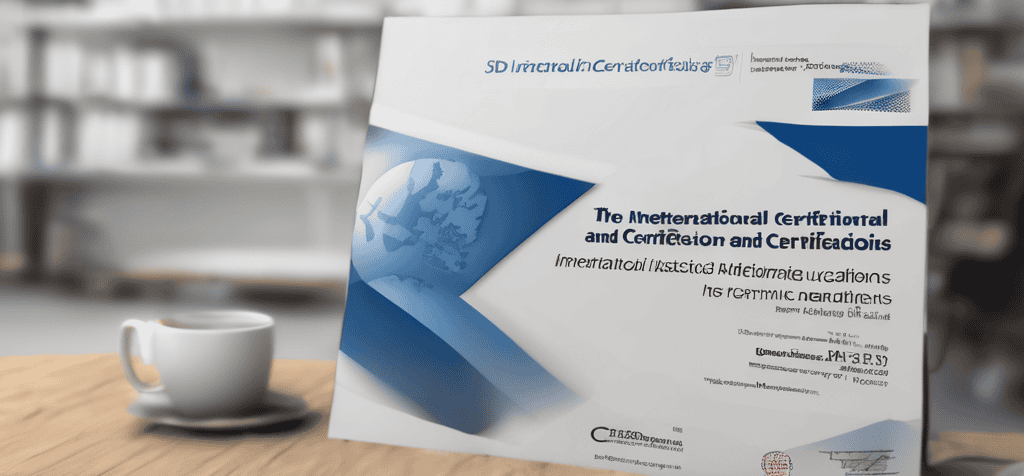International certifications and standards serve as benchmarks of excellence, driving continuous improvement, and fostering trust and credibility in global markets. By adhering to recognized standards, businesses can ensure product quality and safety, facilitate market access, and promote sustainability and corporate responsibility.
In the interconnected world of global trade, adherence to international certifications and standards is essential for businesses seeking to demonstrate their commitment to quality, safety, and sustainability. International certifications and standards provide a framework for benchmarking performance, ensuring compliance with regulatory requirements, and enhancing trust and credibility in the marketplace. Here, we explore the significance of international certifications and standards for businesses and strategies for achieving and maintaining certification excellence.
The Significance of International Certifications and Standards
- Ensuring Product Quality and Safety:
International certifications and standards set rigorous requirements for product quality, safety, and performance, providing assurance to consumers, regulators, and stakeholders. Compliance with recognized standards enhances trust and confidence in the reliability and integrity of products and services.
- Facilitating Market Access:
Certifications and standards serve as passports to global markets, enabling businesses to access new markets and expand their international presence. Compliance with international standards opens doors to trade opportunities, facilitates market entry, and eliminates barriers to entry imposed by regulatory requirements.
- Promoting Sustainability and Corporate Responsibility:
Many international certifications and standards incorporate sustainability criteria, environmental management practices, and social responsibility principles. Adherence to sustainable practices not only demonstrates a commitment to ethical business conduct but also enhances brand reputation and fosters consumer loyalty.
Strategies for Achieving Certification Excellence
- Identify Applicable Standards:
Identify relevant international certifications and standards applicable to your industry, products, and target markets. Conduct thorough research, consult with industry experts, and assess customer requirements to determine the most appropriate standards for certification.
- Establish Compliance Processes:
Develop robust compliance processes and quality management systems to ensure alignment with certification requirements. Implement standardized procedures, documentation controls, and performance metrics to monitor compliance and track progress towards certification goals.
- Invest in Training and Education:
Invest in training and education programs to build internal capabilities and enhance employee competencies in certification compliance. Provide comprehensive training on standards interpretation, implementation best practices, and auditing techniques to empower employees to contribute to certification success.
- Collaborate with Certification Bodies:
Engage with accredited certification bodies and third-party auditors to facilitate the certification process. Seek guidance and support from certification experts, participate in pre-assessment audits, and leverage their expertise to address gaps and improve compliance readiness.
#CertificationExcellence #InternationalStandards #QualityManagement #Sustainability #ComplianceManagement #GlobalTrade #BusinessStrategy #MarketAccess #CorporateResponsibility #QualityAssurance
Read more views















































































